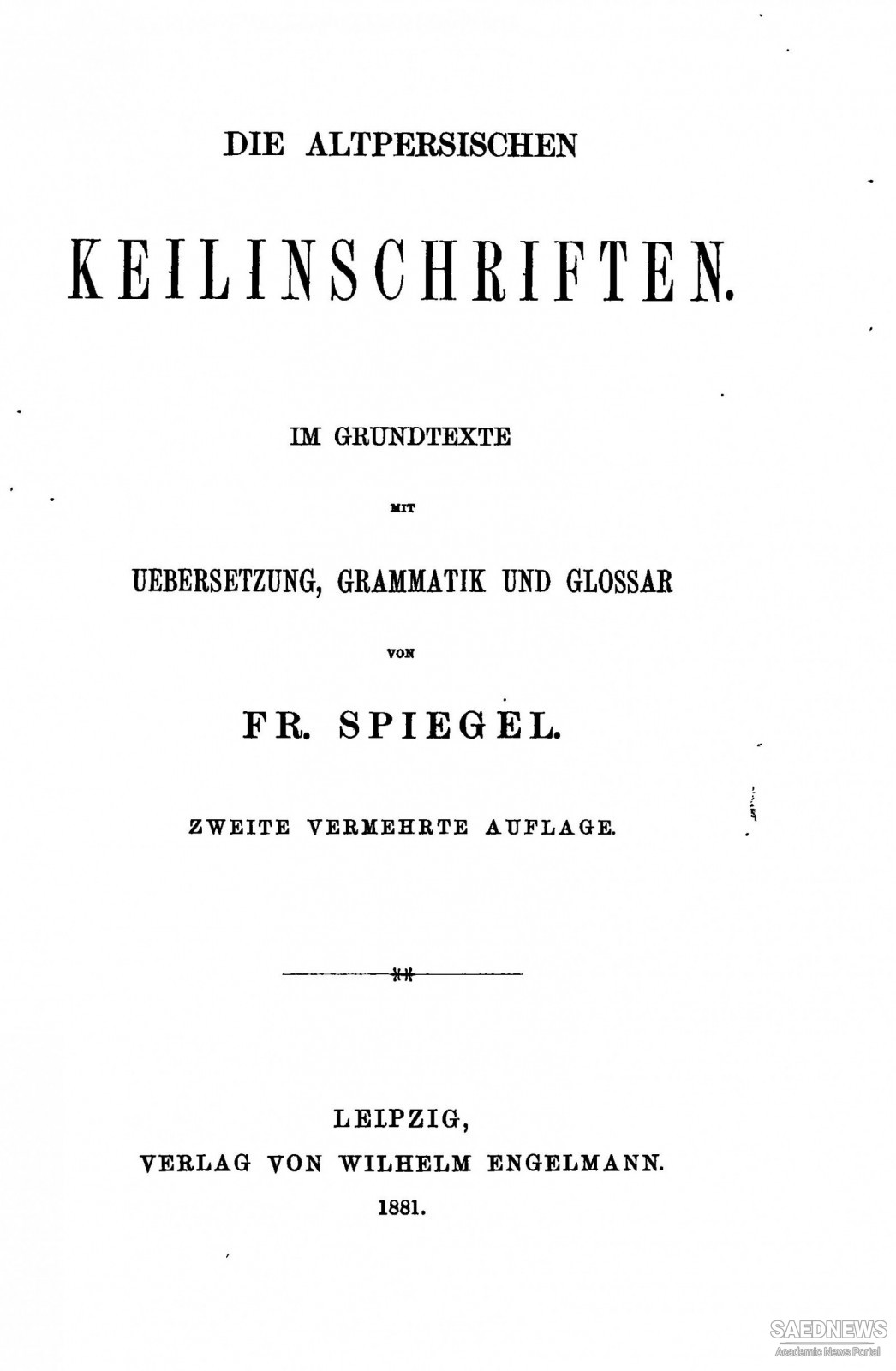Having reached the matriculation level in Ansbach and having already taught himself some Hebrew and Arabic, in 1839 Spiegel enrolled in the University of Erlangen to study theology. Soon he transferred to Oriental studies with the poet and orientalist Friedrich Rückert (1788–1866), who awakened his interest in New Persian literature and in Iran in general. For some time he continued his studies in Leipzig with Heinrich Leberecht Fleischer and Hermann Brockhaus, and in Bonn with Johannes Gildemeister and Christian Lassen (1800–1876), who induced him to deal with Pali. Based on Lassen’s copy of a Paris manuscript, Spiegel edited part of the Buddhist rules for the ordination of monks now known as Kammavācā under the title Kammavâkyam (Spiegel, ed. and tr., 1841). With this first edition and Latin translation of chs. 1–5 of that Pali text he graduated from Jena University in November 1842. In the same year he went to Copenhagen in order to continue the studies in Pali he had begun in Bonn, and to study the Pali manuscripts brought to the Royal Library by Rasmus Rask (1787–1832). This research at the Royal Danish Library resulted in the Anecdota Palica (Spiegel, 1845), wherein parts of the Rasavāhini stories and of the Uragasuttanta (with Buddhaghosa’s commentary) are edited, translated and annotated. With those studies on Pali, the language of the sacred books of the Buddhists, Spiegel, became one of the pioneers in that field in Germany.
While working in the Copenhagen Library, Spiegel became acquainted with the theologian and Oriental scholar Justus Olshausen (1800–82), who was at that time professor of Oriental studies at the University of Kiel. Olshausen had been officially commissioned in 1841 to examine critically the Arabic and Persian manuscripts of the Royal Library in order to catalogue them completely and to publish any important pieces. Closer acquaintance with Olshausen was to prove crucial for Spiegel, since in 1829 Olshausen had published for the first time a section of the Avestan Vidēvdād and was also one of the pioneers in Pahlavi studies. Apparently it was Olshausen, who in Copenhagen prompted Spiegel to deal with the Avestan and Pahlavi manuscripts there, as well as the famous “Codices Hafnienses” Rask had acquired in India.
Spiegel immersed himself more and more in those codices and was directed by this to the field of Old Iranian studies, and in particular to the study of the sacred books of the Zoroastrians, to which he devoted himself until his old age. Tirelessly he copied the manuscripts he considered worthy of the attention of scholars, and Olshausen let him have his own copies of the Avestan codices kept in Paris, thereby helping him considerably.
Afterwards Spiegel continued studying and copying Avestan and Middle Persian manuscripts in London and Oxford for some time. In 1852, he went to Paris to study the Pahlavi Rivāyats, from which he hoped for an insight into the liturgy of the Parsis. After returning from his manuscript studies in 1847, Spiegel lived for some time in Munich, where he associated regularly with the orientalist Marcus Joseph Müller (1809–74), one of the pioneers in Pahlavi studies, and the theologian and Indo-Iranian scholar Friedrich Windischmann (1811–61). The latter’s Zoroastrische Studien: Abhandlungen zur Mythologie und Sagengeschichte des Alten Iran (Berlin, 1863) was edited posthumously by Spiegel. This was after Spiegel in 1849 had been appointed extraordinary professor of Oriental languages at the University of Erlangen, where he taught (from 1852 as full professor) not only Indo-Iranian, but also Semitic languages. He retired at the end of the winter term 1890/91 and returned to Munich.


 Carl Hermann Ethé
Carl Hermann Ethé














































